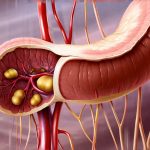Nighttime acid reflux, also known as nocturnal reflux, is a frustrating condition that many people experience. While heartburn during the day can be uncomfortable, nighttime reflux often feels worse, disrupting sleep and leaving individuals feeling exhausted. It’s not simply about discomfort; chronic night-time reflux can contribute to other health issues over time, making understanding its causes and potential solutions important for overall well-being.
This condition differs from daytime acid reflux in several key ways. When lying down, gravity no longer helps keep stomach acid where it belongs, increasing the likelihood of backflow into the esophagus. Additionally, saliva production decreases during sleep, reducing the natural neutralizing effect on acid. This combination can result in more prolonged exposure to stomach acid, leading to irritation and discomfort throughout the night.
Understanding Nocturnal Reflux
Nocturnal reflux isn’t usually caused by a single factor but rather a complex interplay of physiological changes and lifestyle choices. It’s important to remember that occasional heartburn is normal; however, frequent or severe nighttime symptoms warrant attention and consideration of potential underlying causes. Identifying these triggers can be the first step towards finding relief and improving sleep quality.
Understanding why it happens at night specifically is crucial. The body’s natural defenses against acid reflux are diminished when we’re asleep, making us more vulnerable to experiencing those unpleasant sensations.
Common Contributing Factors
What you eat and drink, particularly in the hours leading up to bedtime, significantly impacts the likelihood of nighttime reflux. Certain foods are known triggers for many people, including fatty or fried foods, chocolate, caffeine, alcohol, spicy foods, and citrus fruits. Large meals can also put excessive pressure on the lower esophageal sphincter (LES), increasing the risk of acid backflow. Beyond diet, lifestyle factors such as smoking and obesity contribute to reflux symptoms as well. Smoking weakens the LES, while excess weight puts increased abdominal pressure on the stomach.
Physiological Factors & Body Position
The way our bodies function plays a critical role in preventing or exacerbating acid reflux. A weakened or relaxed lower esophageal sphincter (LES) is often a primary culprit. The LES acts as a valve between the esophagus and the stomach, and when it doesn’t close properly, stomach acid can escape upwards. Certain medical conditions, such as hiatal hernia, where part of the stomach protrudes through the diaphragm, can also increase reflux risk. Body position during sleep is another factor; sleeping flat or on your right side may worsen symptoms compared to sleeping on your left side or with your head elevated.
Sleep & Stress Levels
Surprisingly, sleep itself and levels of stress can both contribute to nighttime acid reflux. Poor sleep quality can disrupt digestive processes and potentially weaken the LES. Conversely, experiencing acid reflux during the night disrupts sleep, creating a vicious cycle. Similarly, chronic stress is linked to increased stomach acid production and altered gut motility, which can exacerbate reflux symptoms. Managing stress through techniques like meditation, yoga, or deep breathing exercises may offer some relief.
Ultimately, managing nighttime acid reflux often involves a combination of lifestyle adjustments, dietary modifications, and potentially seeking guidance from healthcare professionals to address underlying contributing factors. Consistent effort and attention to these areas can lead to improved sleep quality and overall well-being.


















